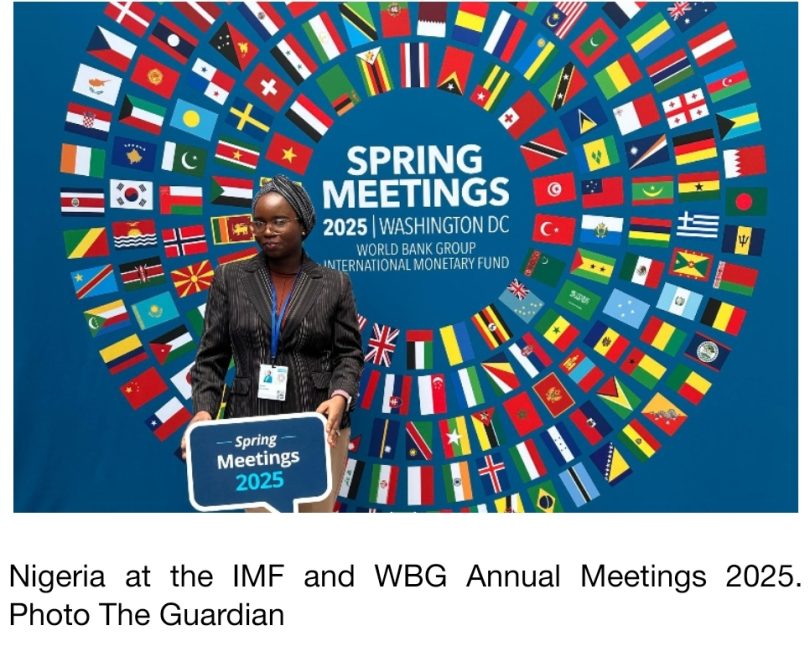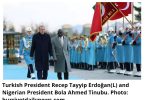Nigeria’s delegation has concluded a series of high-level engagements at the 2025 Annual Meetings of the International Monetary Fund (IMF) and the World Bank Group in Washington, D.C.
Against a backdrop of persistent global economic challenges, the Nigerian team presented a narrative focused on the tangible outcomes of its domestic economic reform agenda, aimed at restoring macroeconomic stability and rebuilding investor confidence.
The delegation’s primary message centered on the assertion that its recent, bold policy shifts—including the removal of fuel subsidies and the unification of the foreign exchange market—are already yielding measurable, positive results.
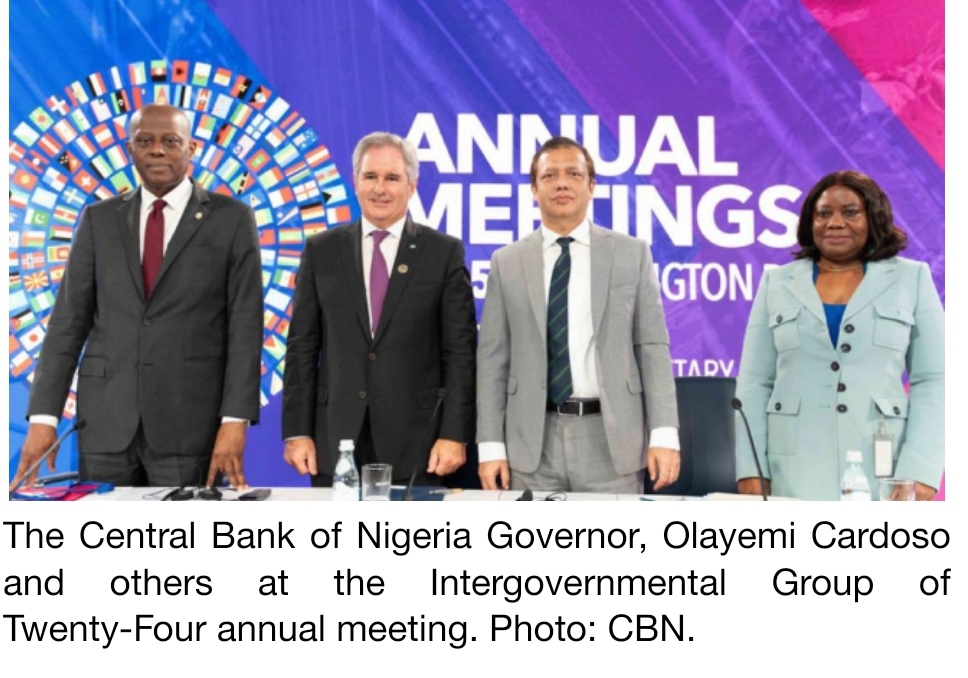
The Nigerian Delegation and Policy Stance
The delegation was led by Mr. Olayemi Cardoso, Governor of the Central Bank of Nigeria (CBN). He was joined by a robust team of senior officials, including the Minister of State for Finance, Dr. Doris Uzoka-Anite; CBN Deputy Governor for Economic Policy, Mr. Mohammed Sani Abdullahi; Director General of the Debt Management Office (DMO), Ms. Patience Oniha; Director-General of the Bureau of Public Enterprises (BPE), Mr. Ayodeji Ariyo Gbeleyi; and the Special Adviser to the President on Economic Matters, Mr. Tope Fasua. Governor Cardoso also represented the Minister of Finance and Coordinating Minister of the Economy, Mr. Wale Edun, who was absent for medical reasons.
In a press briefing at the conclusion of the meetings, Governor Cardoso outlined the delegation’s objectives. “This has been a defining moment for Nigeria,” he stated. “An opportunity to showcase the tangible progress of our reform agenda and reaffirm our commitment to macroeconomic stability, fiscal discipline, and inclusive growth.”
Governor Cardoso affirmed the CBN’s return to orthodox monetary policy, citing a renewed focus on interest rate adjustments, liquidity management, and data-driven forecasting. “We’ve restored orthodoxy,” he remarked. “We are focused on transparency, market signals, and long-term confidence. And it’s delivering.”
To support this, he shared several key data points:
- Inflation: Headline inflation declined for the sixth consecutive month in September, to 18.02%, its lowest level in three years.
- Foreign Exchange: The FX market has reportedly stabilized, with the naira appreciating and the gap between the official and parallel market rates narrowing to under 2%.
- Foreign Reserves: Gross foreign reserves are now above $43 billion, a recovery bolstered by improved market confidence, non-oil inflows, and the return of portfolio investors.
Election to G-24 Chairmanship
A significant multilateral outcome for Nigeria during the meetings was its election as the next chair of the Intergovernmental Group of Twenty-Four (G-24), an influential bloc of developing nations from Africa, Asia, and Latin America. Nigeria is set to take over the position from Argentina on November 1, 2025.
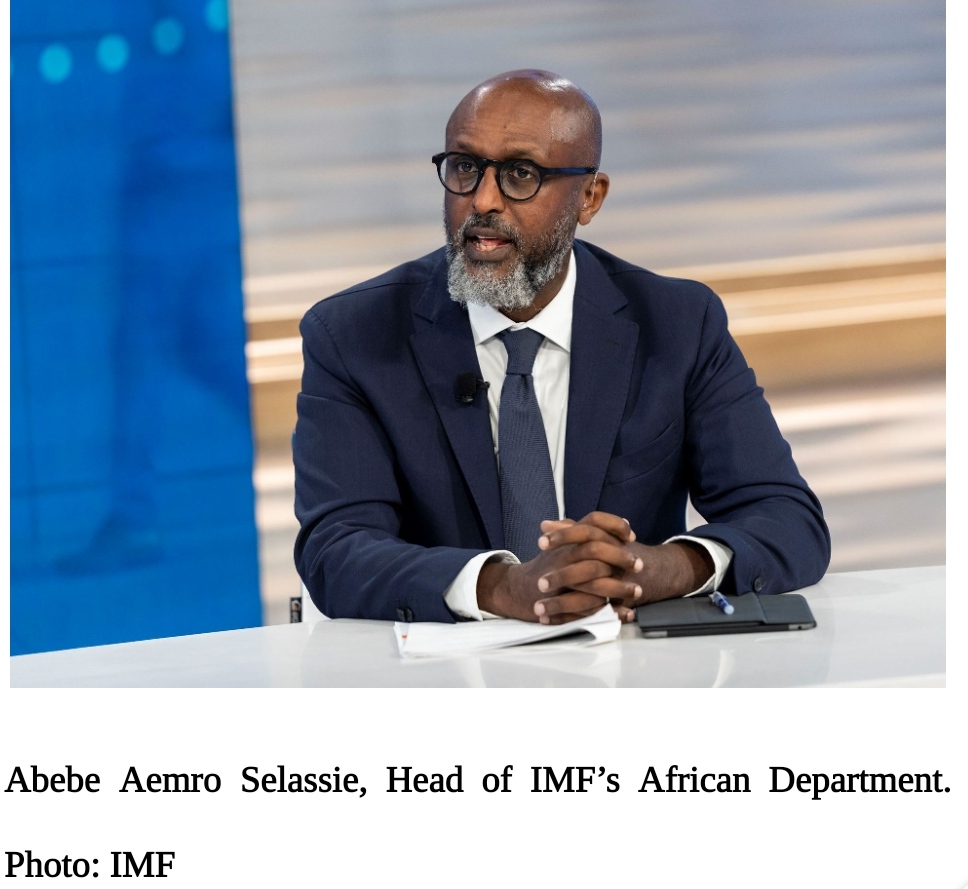
The delegation presented this development as a validation of the country’s economic stewardship. “This milestone underscores international confidence in Nigeria’s leadership and our growing influence in shaping the global financial architecture,” Governor Cardoso told journalists. He indicated that Nigeria’s agenda for the G-24 would centre on development finance, debt sustainability, and financial inclusion.
In a related move to strengthen regional financial ties, Nigeria also signed a Memorandum of Understanding (MoU) with the Central Bank of Angola. Governor Cardoso explained this agreement as part of Nigeria’s broader goal of enhancing its influence and promoting monetary cooperation and financial stability within regional institutions.
IMF Upgrades Nigeria’s Economic Outlook
The delegation’s positive reporting was complemented by the IMF’s revised near-term outlook for Nigeria’s economy. During the launch of the World Economic Outlook (WEO), Ms. Deniz Igan, Division Chief in the IMF’s Research Department, announced significant upward revisions to the country’s GDP growth projections.
“For 2025, we revised upward the growth rate for Nigeria to 3.9%, which is 0.5 percentage points higher than what we had before,” Ms. Igan announced. “We have also upgraded the 2026 growth projection by 0.9 percentage points to 4.2%.” The 2024 growth estimate was also raised to 4.1%, up by 0.7 percentage points from earlier forecasts.
Ms. Igan attributed these positive revisions to a combination of structural and policy-driven factors. These include Nigeria’s recent GDP rebasing, which now captures previously underrepresented informal sector activities, as well as “macroeconomic stability, improved investor confidence, a supportive fiscal stance, and rising oil production under better security conditions.”
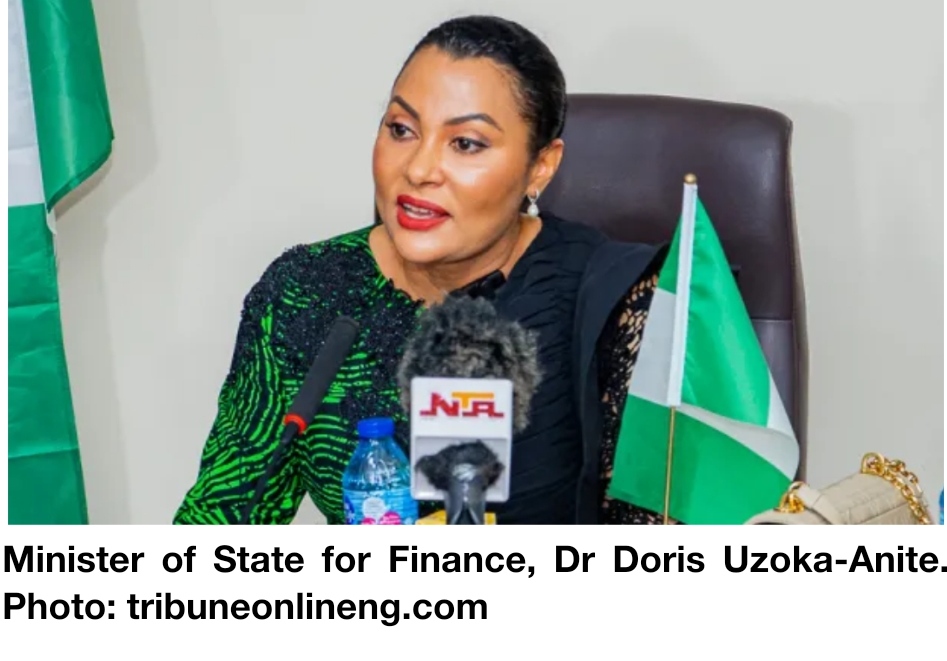
The IMF official added that since July 2025, “the naira has appreciated and financial conditions have improved, helping to drive investor sentiment.” She also noted that “hydrocarbon growth was also revised up with higher oil output, and Nigeria’s limited exposure to U.S. tariffs helped cushion against global shocks.”
Multilateral Assessment and Forward Guidance.
Mr. Abebe Aemro Selassie, Director of the IMF’s African Department, provided a more measured but supportive appraisal. At a press conference on the Sub-Saharan Africa regional outlook, he affirmed that Nigeria’s recent inflation trends were “consistent with monetary tightening,” but cautioned that he believes “there is still some distance to go before achieving the desired stability.” He clarified that Nigeria, like many countries, is experiencing disinflation a slowdown in the rate of price increases rather than an outright price reversal.
Mr. Selassie highlighted two core priorities for Nigeria moving forward: domestic revenue mobilization and debt management. “There is substantial scope to boost revenues through improved tax administration and policy reforms,” he said, pointing to digitalization and risk-based compliance strategies. However, he warned that success would depend on “stronger technical capacity, political buy-in, and attention to the social impact of such reforms.”
On debt, the IMF African Department Director urged Nigeria to “strengthen transparency and public financial management to reduce fiscal risk,” with priority actions including “publishing comprehensive debt data” and “improving budget oversight.”
Investor Confidence and Fiscal Impact
The Nigerian delegation emphasized the integration of its fiscal and monetary reforms. Minister of State for Finance, Dr. Doris Uzoka-Anite, reinforced this narrative in media engagements, stating that global partners were closely following the country’s reform path.
“Everyone is really excited about the reforms and the macroeconomic stability that has followed,” Dr. Uzoka-Anite said. “To them here, it’s like a miracle that we could do such bold reforms, multiple reforms, not just one, and within two years, we are witnessing growth.”
She highlighted that the projected GDP growth of 4.23% is now outpacing population growth. “That means a child born today is growing up in an economy that can provide for him or her,” she stated. Dr. Uzoka-Anite also linked falling inflation figures to improved clarity in the FX market, which she said is “reducing the high cost pass-through that previously distorted prices.”
The minister reported a wave of renewed investor interest, evidenced by a successful Nigeria Investor Forum held in Washington. “It was all the investors asking: when is Nigeria coming to the market?” she said, pointing to growing credibility in the Eurobond space. Furthermore, she cited recent foreign direct investment (FDI) commitments, such as a $2 billion investment from Shell, as tangible proof that confidence is translating into capital.
Post-Meeting Recap and Conclusion
In a formal statement titled “Post-meetings Recap,” Dr. Uzoka-Anite summarized the week’s outcomes. “Led by the Central Bank Governor, Mr. Olayemi Cardoso, our delegation presented a unified front — fiscal and monetary authorities working hand in hand to deliver macroeconomic stability, discipline, and inclusive growth.
She confirmed a series of multilateral and bilateral engagements, “from meetings with the Islamic Development Bank and the World Bank’s Managing Director of Operations, to the G24 and Coalition of Finance Ministers for Climate Action.”
According to the minister, “Across all forums, there was a consistent acknowledgement that Nigeria’s reform agenda is yielding results.” A key endorsement she highlighted came from the IMF Managing Director, Kristalina Georgieva, who she quoted as saying: “Thank you, Nigeria, for showing the world that reform does work.”
Dr. Uzoka-Anite concluded that the engagements opened new avenues for partnership in infrastructure, renewable energy, and climate finance, aligning with the “Renewed Hope Agenda.”
“We return home from Washington not only with stronger partnerships, but with greater resolve,” she stated. “The task ahead remains clear: to deepen reform, unlock private investment, and ensure that growth translates into prosperity for every Nigerian.”


